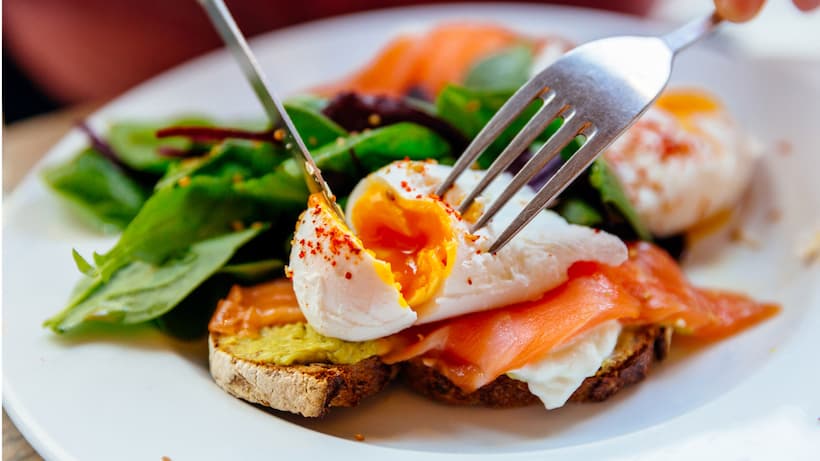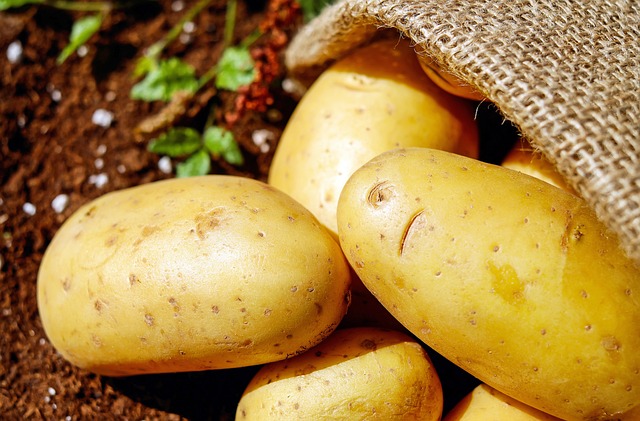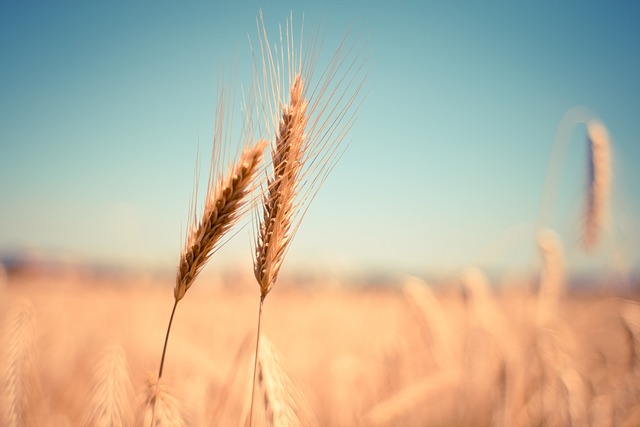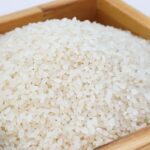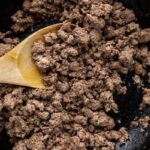Does Protein Give You Energy? Yes, How Much Protein Is Good?
Protein enjoys quite a reputation in the health community. Its health advantages include aiding in weight loss, muscle growth, and even managing cholesterol and blood sugar.
The question is, does protein give you energy too?
Yes, eventually.
Protein gives you energy. Protein is primarily used for system maintenance and structure-building. The body will, however, turn to protein when the supply of fats and carbohydrates runs out in order to access the glycogen that is stored in lean muscle, which will be broken down. Other, more subtle ways that protein helps your body include:
For more information, keep reading.
Table of Contents
How Does Protein Energise You?
So, how exactly does protein become a source of energy in the body?
Protein isn’t actually the body’s preferred method of directly generating energy.
Because they are simpler to convert to glucose, the body usually prefers to use carbohydrates as its primary source of energy. The second most preferred way to produce energy is through fats, which are more difficult to break down, after using any carbs that have been stored by the body.
Protein is not stored in the body like carbohydrates and fats, so only a small portion of it is directly converted into energy. Protein is utilized by the body once it has used all of the available fats and carbohydrates for fuel. The body typically begins to break down your physical muscles because protein supports the body’s muscle structure.
Despite not being the best energy source, protein must be a part of your diet if you want to keep your energy levels high. For example, maintaining steady blood sugar levels with both protein and carbohydrates will make it less likely for you to experience an energy crash midway through a workout. A healthy metabolism is supported by protein because it also aids in maintaining muscle mass.
Protein is necessary for the body to store iron, which in turn helps to maintain energy levels.
“According to Dhillon, protein is a good source of long-lasting energy. “However, it also aids in muscle repair and growth; the more robust our muscles, the more likely it is that we will be able to push ourselves further and faster during exercise and in everyday life.”
Because of this, even though protein may not directly provide us with energy, it is an essential component of any active lifestyle, and without it, you might find that your energy levels aren’t as high as they could be.
When Does The Body Use Protein As An Energy Source?
Protein can be metabolized and used as an energy source for the body, but it’s not the “preferred” source of energy.
Because of their quick action and ease of conversion to usable glucose, carbohydrates are our main source of food energy. Because our bodies are all about efficiency.
Glycogen, a form of glucose stored for energy, can only be formed in the liver and muscles from a very small amount of carbohydrates (roughly 1,200–2,000 calories worth). Our body therefore prefers fats as its secondary energy source when there aren’t enough carbohydrates available.
Compared to carbohydrates, fats are more nutrient-dense and contain more energy, but the body has a harder time converting them into energy that can be used. This explains why you might experience a feeling of having “hit a wall” 60 to 90 minutes into a challenging workout when your glycogen stores are depleted.
Our bodies typically only use a small amount of protein each day to provide us with energy. Protein cannot be stored like fat and glycogen because it is designed for growth and repair. Muscle is broken down into amino acids, which are the building blocks of protein, and converted to glucose, which can be used as fuel for the body and brain, in some circumstances, such as when we eat too few calories, restrict carbohydrates, or in the later stages of endurance exercise.
A certain amount of muscle loss occurs as the body attempts to maintain a healthy level of glucose while trying to reduce body fat through calorie restriction or increased exercise. See more about Can Your Skin Absorb Calories?
Why Is Protein Used By The Body?
The majority of people are aware that protein serves as the building block for muscle, but protein also plays an important role in nearly all bodily processes. In fact, protein is found in every cell of our bodies.
Different combinations of amino acids are used to make proteins. Nine of the 20 amino acids needed to make proteins can be produced by our bodies, but the remaining nine amino acids must be obtained from our diet. Complete proteins are defined as foods that contain all nine essential amino acids, such as quinoa and buckwheat.” However, not every amino acid found in a meal is required by humans. You’ll probably consume enough dietary protein to support your body systems if you eat a variety of amino acids throughout the day.
Here are a few of proteins’ essential jobs:
- Our bodies use amino acids for both building and tissue repair, including the development of bones, muscles, skin, hair, and nails.
- moving nutrients and oxygen. Your body is supplied with the energy it needs because transport proteins transport vitamins, minerals, and oxygen throughout the body. A few proteins also serve as storage agents, such as the iron-storing ferritin.
- Protein aids in the production of antibodies that ward off disease and support our overall health.
- regulating some hormones. Amino acid chains are used to create a class of hormones known as “protein and peptides.” This includes hormones like insulin, glucagon, human growth hormone, and others that proteins enable!
Are Protein Shakes Energizing?
Protein’s primary function is not to provide you with energy, as was previously mentioned. Protein shakes, particularly whey protein, are a well-liked supplement used to maintain an effective workout because it builds lean muscle. Protein shakes help your body build and repair muscle, but this does have an impact on your energy levels.
Hobson advises blending frozen fruit into your protein shake because it will give your body some carbohydrates for energy. This is a good way to aid in the digestion of vegan shakes, which typically contain less than 20g of protein, the speaker said. Insulin is released in response to carbohydrates, which aids amino acid absorption.”
Why Do We Need Protein?
As a macronutrient, protein is referred to. This indicates that it is a nutrient that the body absolutely requires in large amounts for energy and as a fundamental component of any diet. It can be found in large quantities in plant-based sources like nuts and legumes, though it is most frequently found in animal products.
We are all aware that the body needs food for fuel. You might not be aware, however, that a significant amount of the body’s energy requirements are met by protein.
Protein is crucial for controlling appetite because it can make you feel full. As one 2014 Nutritional Journal(opens in new tab) study showed, eating protein rather than sugar leads to lower levels of hunger later in the day.
It helps the body stay in top condition and supports regular energy levels, a healthy appetite, and even brain function.
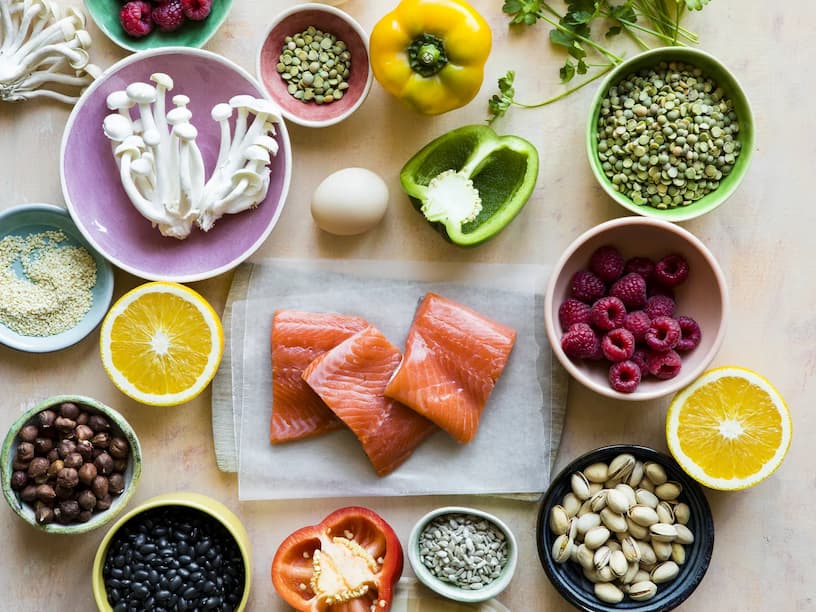
What Vegetables Contain Protein?
Protein isn’t exclusively present in animal products like meat, fish, and eggs, despite a widespread misconception to the contrary. Whilst meat, seafood, and certain dairy products, are great sources of protein – take turkey, for example, Nutrition Data(opens in new tab) shows that a three-ounce (28g) serving of turkey can provide 23 grams of protein – but we can also gain protein from a wide selection of other foods.
For anyone consuming a vegan or meat-free diet, nuts, seeds, beans, and pulses are all excellent sources of protein. According to NutritionData(opens in new tab) one ounce of pumpkin seeds holds 7 grams of protein. Similarly, one cup of edamame contains 17 grams of protein. When it comes to getting enough protein, Stache said, “The options are endless, and your daily intake should most definitely not be constrained by your lifestyle and choice of diet!””. See more about Are Beans Protein?
Protein’s Energy Content: How Much Is There?
Although a gram of protein has four calories, the same as a gram of carbohydrates, the body does not readily use protein as a fuel source. Protein contributes about 5% of the daily energy on an average day. Protein can supply up to 15% of the energy needed during arduous exercise if glycogen stores are depleted. In general, protein is not a quick or effective source of energy, and because it cannot be stored, any protein that is consumed and not immediately used is converted to fat for storage.
Because it affects how our bodies metabolize other nutrients, protein is still essential for preserving a healthy energy level.
A Balanced Diet Should Include How Much Protein?
The Recommended Dietary Allowance (RDA) for protein is 0.8 grams per kilogram of body weight. To avoid fatigue and promote muscle growth, you may want to consume more protein than the minimum amount if you lead an extremely active lifestyle. Try using the USDA DRI calculator(opens in new tab) to accurately determine your recommended nutrient intake based on your body type and lifestyle.
If you’re thinking about changing the amount of protein in your diet, we advise consulting with your physician or nutritionist. Even though high-protein diets are well-liked, they aren’t always the best choice for a balanced, healthy lifestyle.
There are some negative consequences to eating too much protein, such as:
- Weight gain. A 2016 study published in the journal Clinical Nutrition(opens in new tab) showed that too much protein can lead to weight gain and cardiovascular issues.
- Digestive problems. Too much protein can result in cramps, constipation, diarrhoea, or bloating, according to an ISRN Nutrition(opens in new tab) study.
- Kidney disease. One 2020 PubMed(opens in new tab) study found that excessive protein could lead to kidney hyperfiltration.
- Risk of cancer. A 2014 Cell Metabolism(opens in new tab) study showed that high-protein diets could be linked to a heightened risk of dying from cancer.
Why Do People Associate Protein & Energy Together?
Consequently, why do people equate protein with energy? Perhaps the following justifications have some scientific basis:
Feel Fuller If We Consume More Protein
It is well established in science that protein generally has a higher satiety level than calories from carbohydrate or fat. This is accurate following a single meal and, as part of a higher protein diet, may help with satiety throughout the day. As a result, it’s possible that people who consume a diet high in protein mistakenly believe they have more energy when in fact what they’re feeling is a lack of hunger. It’s possible that this could be taken to mean “increased energy,” but this hypothesis would need to be verified through research.
A “Sugar Crash” Might Be Prevented With Protein
The “sugar crash” that can happen after consuming sugar-rich meals is something that many of us can relate to. Although you might feel energized at first, you might later feel lethargic. According to some studies, eating a meal high in protein or a meal balanced with protein and a particular type of carbohydrate causes your blood sugar to rise less than eating a meal high in carbohydrates would. In fact, one study even found that consuming whey protein before a meal resulted in a smaller increase in blood sugar after the meal. This “sugar crash” can be prevented by eating meals with a balanced protein-to-carbohydrate ratio, which may give the impression that protein “improves energy.””
The Quality Of Sleep During Weight Loss
In a recently released study, it was discovered that eating more protein while dieting enhanced the self-reported quality of sleep in overweight and obese adults. More research is required to confirm these findings because this is the first study to find a connection between protein and sleep. However, if the findings hold true for other populations, eating a higher protein diet may result in feeling more energised.
The Bottom Line
Therefore, whether it comes from animal-based sources or plant-based sources, make sure you consume enough protein. If you are unable to get enough protein from food, a high-quality protein supplement can guarantee that you are providing your body with the nutrients it requires each day to operate at its best.
Although there are many possible explanations for the association between protein and energy, one thing is certain: quality dietary protein — as is found in dairy foods like milk, cheese and yogurt — is important for overall health. Dairy products contribute nutrients like calcium, vitamin D, and potassium to American diets in addition to high-quality protein. So keep eating your preferred protein foods, whether for perceived “energy” or other significant health advantages.
I sincerely appreciate you reading.

